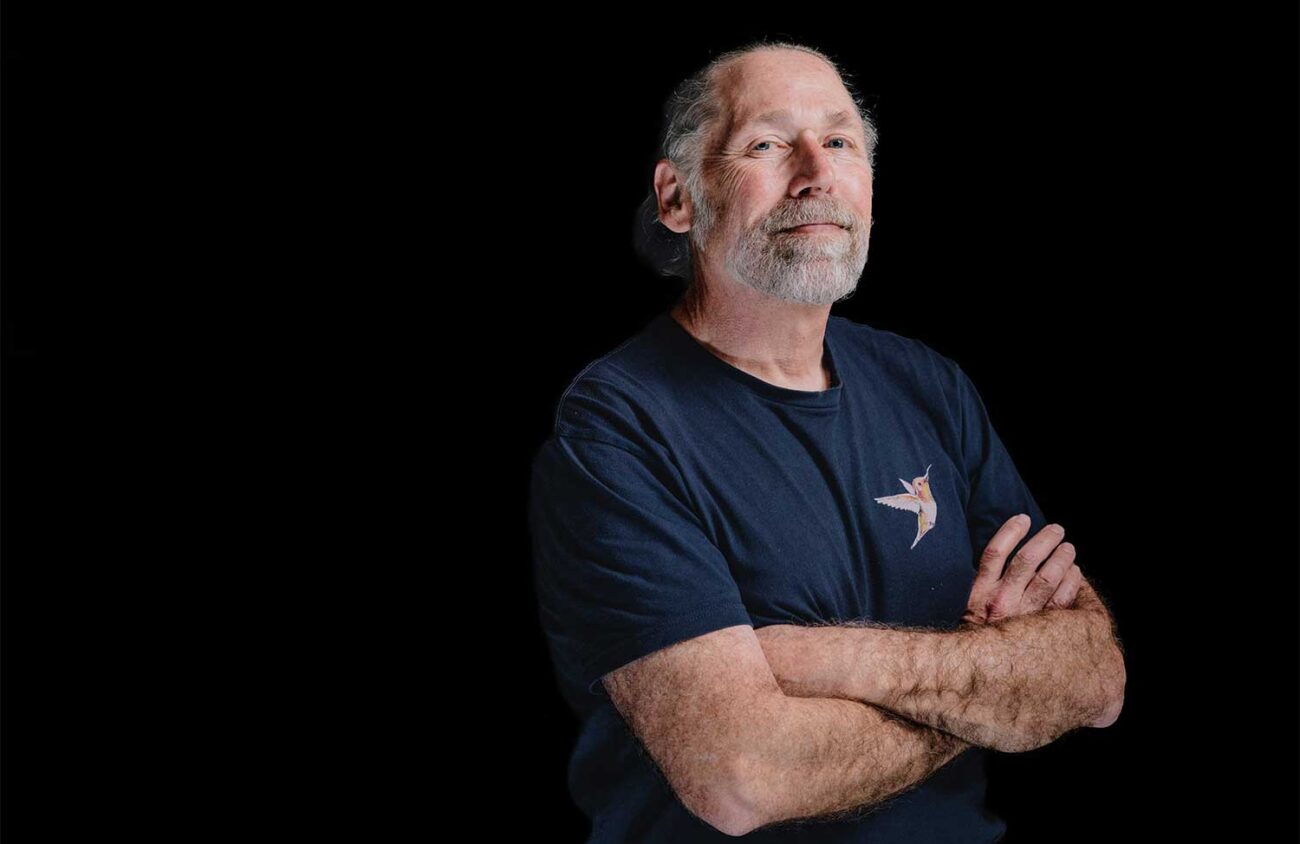Ted Coopman, chair of Jefferson Westside Neighbors, is running for the Ward 1 seat on the Eugene City Council as an “Independent Democrat.” Coopman has been a resident of Ward 1 since 2016 and joined the JWN Board shortly after arriving. He has served as chair of the board every year since 2018.
Coopman is running against downtown business owner Ethan Clevenger and Lane County Planning Commission member Eliza Kashinsky for the downtown Ward 1 position currently held by Emily Semple, who is not running again.
Coopman has a bachelor’s degree in theatre arts from Fresno State University, a doctorate in communication from University of Washington and a master’s degree in mass communications from San José State University. He worked as a lecturer in communication studies and a faculty consultant for academic technology at SJSU until 2020. Prior to moving to Eugene, Coopman says he’d often visit the city to see friends.
As chair of the JWN Board, Coopman says he has worked with Eugene City Council and city management a number of times, but he says his experiences weren’t always positive. Coopman filed against the City of Eugene and the Oregon Land Use Board of Appeals in the Oregon Court of Appeals in 2023 amid Eugene’s efforts to expand the Accessory Dwelling Unit ordinance.
In 2021, Coopman says he met with City Manager Sarah Medary and the Eugene Planning & Development Department to make sure changes in ADU regulations wouldn’t cut into JWN’s special area zones that restrict the height of new constructions. In January 2024 testimony to the City Council, Coopman stressed that “the proposed middle housing ordinance has the potential to increase density by a factor of five … Are we willing to roll the dice on a ‘feeling’ that we have adequate infrastructure to meet ‘most needs’ over the next five years?”
According to JWN’s webpage, the Historic District Task Force was formed, “In an attempt to avoid the fate of other older urban neighborhoods that have succumbed to infill redevelopment.”
ADUs are buildings constructed as an offshoot of primary residences and serve as a way to counteract the local housing crisis.
Coopman says it was Medary who assured him and the JWN board that Eugene Planning would abide by whatever plan the board crafted to resolve the issue. Two days before the board’s meeting with the City Council, however, Coopman says Planning rescinded its offer.
“They bargained in bad faith,” Coopman says. “They lied to us. They didn’t misspeak.”
Coopman says that Medary “needs to exercise a little bit tighter control of her management team” and that the incident “was a major blow,” but that he has no current plans to seek her termination. He does, however, believe that the role of city manager should be an electable position so that the public has a say.
Outside of the JWN board, Coopman says he is an active member of the Eugene Area Chamber of Commerce’s Homelessness Initiative and says he was the only neighborhood leader to be invited to participate. Coopman advocates for the expansion of the city’s Safe Sleep Sites and sanctioned camping programs.
“If [the city] has a better solution at this point to deal with the problem we have now,” Coopman says, “now would be the time to drop it.”
Coopman says that it is “unacceptable to the point of evil” that Eugene has tolerated the level of homelessness to this point without offering a solution. He says he hopes that by increasing sanctioned camping, Eugene can further restrict and prevent street camping.
“Any street camping, we just cannot have it,” Coopman says. “It is unsafe, it is unsanitary, it’s terrible for homeless people, it’s bad for businesses.”
Coopman does not, however, think the police force should be used as a means for managing the homelessness crisis in Eugene.
“The homeless don’t like it, the cops don’t like it,” he says. “Maybe we should do something else.
Although Coopman doesn’t plan to involve the Eugene Police Department in housing issues, he does not think that Eugene has enough police officers and hopes to increase those numbers.
“I think that the move towards community service officers and reserving armed sworn officers to very limited roles on very specific things is the way to go,” he says. “I think we’re on a trajectory to have better police.”
According to ORESTAR, Coopman’s campaign received its three largest donations from Dave Hurst, a member of the JWN Historic District Task Force and Coopman’s across-the-street neighbor; Garth McKay, a research scientist and photographer living in JWN; and Allan Benavides, the general manager of the Eugene Emeralds baseball team. Hurst contributed $2,925 in-kind, McKay contributed $1,000 and Benavides contributed $2,000 .
Coopman also loaned the campaign $5,000, according to ORESTAR. In total, Coopman’s campaign has received over $26,000 in contributions and spent just under $22,000.
Coopman has been endorsed by current Ward 1 Councilor Emily Semple, the Eugene Police Employees Association, Benavides of the Ems and more. Coopman,
Benavides and members of the JWN board have all written letters to Eugene Weekly in response to a May 9 viewpoint criticizing Coopman for his financial ties to the Ems written by JWN residents Heather Marek, Anya Dobrowolski and Christine Beneda. In his response, Coopman says the viewpoint denigrated Stephanie Coopman, his wife, by referring to her not by name but as “his wife.”
“As women, the authors should know better,” Coopman writes.
Coopman further referred to the viewpoint as “hyperbolic lies and character assassination.” The viewpoint written by Marek, Dobrowolski and Beneda claims that Coopman supports the construction of a multi-use stadium for the Ems, pointing to financial ties with Benavides, which all three respondents deny as the reason for support.
